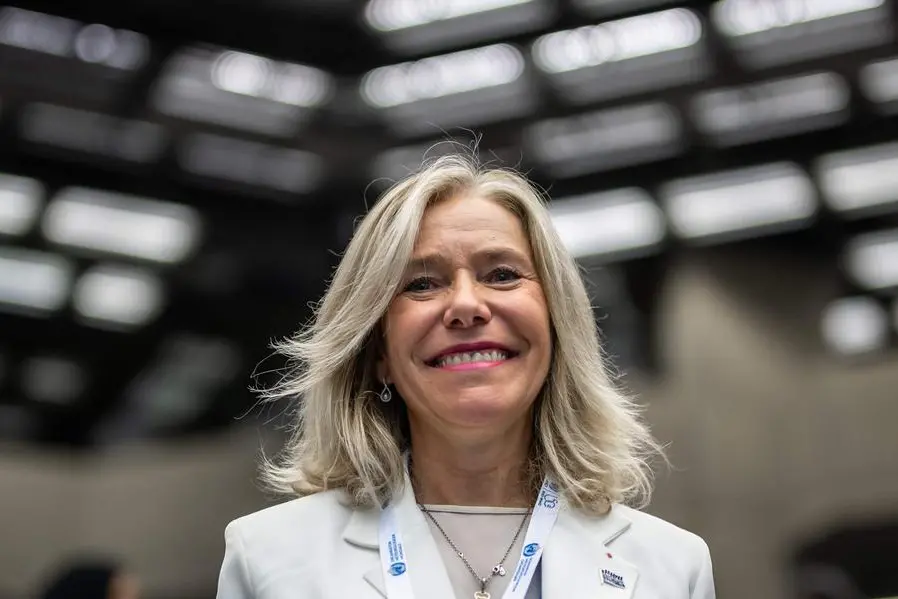PHOTO
Celeste Saulo, the incoming head of the UN's weather and climate agency, said she would fight with a passion to combat climate change and its negative impacts on people's lives.
In an interview with AFP, Saulo, who has run Argentina's National Meteorological Service since 2014, voiced deep concern that some countries were not getting the message about the effects of pumping ever more greenhouse gases into the atmosphere.
But the next head of the World Meteorological Organization insisted it was not too late to change how the climate crisis story ends.
"We have no plan B," said Saulo, 59, who will become the WMO's first woman leader when she takes office on January 1.
"Are we going to stay waiting for a dramatic end, or are we going to fight for our kids and our future? We are going to fight. I'm sure about that, and I will do that."
The Argentinian professor said there was no point waiting for a "miracle" solution to halt and reverse climate change.
The answer "is us", she said.
"With passion, love, compromise and engagement. It is the only way. We cannot see this as a movie over there on the screen; we are in the movie and we can change the movie. It is our role. It's a must."
- Global goals, local action -
Saulo was elected by a landslide on Thursday to take over from Petteri Taalas as the WMO's secretary general when his maximum second four-year term finishes at the end of the year.
She won the required two-thirds majority on the first ballot with 108 votes, the other three candidates on 37, seven and four votes from member states.
Saulo said she was "overwhelmed" by the strength of her support, saying it sent a very clear signal about "the need for change" and new ideas at the WMO.
"We are under a huge global crisis which is the combination of climate change and inactivity," she said, vowing to strengthen the WMO's coordination and innovation.
The WMO pieces together the work of national weather agencies in monitoring greenhouse gases, sea levels, temperatures, glacier melting and other climate change indicators.
Citing as an example the WMO's plans to have everyone on the planet covered by first-class early warning systems for incoming weather hazards, Saulo said her top priority was implementation on the ground.
"You have to have global goals but local action," she said.
Ultimately, "implementation is about people. And people have their environment, their culture, their necessities, their opportunities and their dreams, and we have to work for them."
- 'Stop it' -
Saulo has pledged to be a voice for the countries most vulnerable to extreme weather exacerbated by climate change -- nations which often had the least to do with creating it.
"In the WMO, we care about what happens with the less-developed world and the small island states. The problem is that we don't have specific programmes to address their needs," she said.
Saulo said some countries bearing heavy responsibility for fuelling global warming were "not really" seeing the picture on climate change.
"I'm really worried about that. And I will do my best from this organisation to try to convince those that have to do the actual change to really commit."
Scientific experts from across the board were sending "such a clear message... stop it. And it worries me a lot that we are not understanding that message."
Saulo said the WMO therefore had to decrypt some of its climatological and meteorological terminology.
"We have to speak their language," she said.
Nonetheless, Saulo is feeling positive.
"We have young people. We have people that want to change things," she said.
"So I'm optimistic because we can start from small actions, show results and working together, we will make it."





















